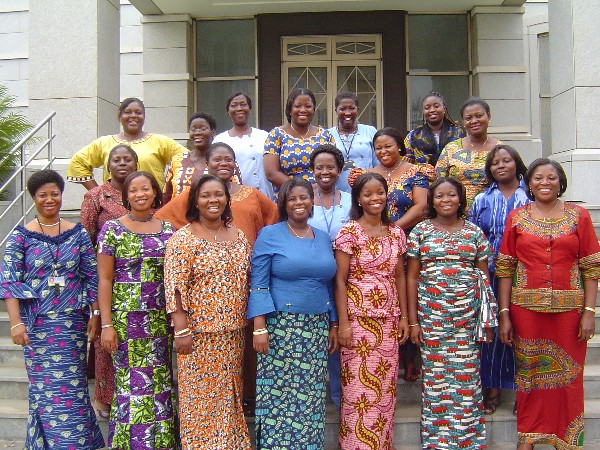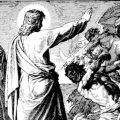Question
Gramps,
What does it mean to be a King and Queen, Priest and Priestess? I’m not sure I want to be a king and a ruler over anybody. What am I missing?
Paul
Answer
Paul,
In the theology of The Church of Jesus Christ of Latter-day Saints, the concepts of Kings and Queens, as well as Priests and Priestesses, represent profound beliefs about individuals’ divine potential. These titles encompass the roles and responsibilities that faithful members aspire to achieve in the Kingdom of God, reflecting deep spiritual truths and eternal purposes.
The journey toward exaltation in Latter-day Saint theology is marked by the potential to attain divine status. Members believe that through faithfulness and adherence to sacred covenants, they can become Kings and Queens, as well as Priests and Priestesses, in the eternities. This belief is not merely aspirational; it is deeply rooted in scripture and the teachings of modern prophets. The roles of Kings and Queens, Priests, and Priestesses are intertwined with the principles of governance, leadership, and spiritual authority, which are essential for those seeking to fulfill their divine roles.
Central to the teachings of The Church of Jesus Christ of Latter-day Saints is the doctrine of exaltation, which outlines the ultimate goal for faithful members. Elder Bruce R. McConkie states,
Those women who go on to their exaltation, ruling and reigning with husbands who are kings and priests, will themselves be queens and priestesses. They will hold positions of power, authority, and preferment in eternity.
This statement underscores the belief that both men and women have the potential to achieve high spiritual status in the afterlife.
The doctrine is further supported by the Doctrine and Covenants, particularly in sections that discuss the rewards of temple marriage. For instance, Doctrine and Covenants 132:19 states:
And again, verily I say unto you, if a man marry a wife by my word, which is my law, and by the new and everlasting covenant… they shall inherit thrones, kingdoms, principalities, and powers, dominions, all heights and depths.
This scripture emphasizes that the divine potential of becoming Kings and Queens is closely tied to the sacred covenants made in the temple.
The scriptural framework for understanding these roles is rich and varied. The Book of Mormon provides context for the intertwining of royal and priestly duties, notably in the example of King Mosiah, who consulted with his priests about governance, illustrating the duality of leadership that encompasses both spiritual and temporal authority.
The Doctrine and Covenants also reinforce these concepts, particularly in Doctrine and Covenants 76:56-57, which highlights the potential for individuals to become “priests and kings” who have received fullness and glory. This verse reflects the eternal perspective that members of the Church hold regarding their spiritual progression and ultimate destiny.
The titles of Kings and Queens, Priests and Priestesses signify specific roles and responsibilities within the framework of Latter-day Saint theology.
The concept of Kings and Queens in the context of exaltation reflects the belief that individuals will have the divine right to rule and lead in the Kingdom of God. These roles are characterized by governance, leadership, and stewardship over one’s eternal family and kingdom. Members are taught that through righteous living and faithfulness, they can aspire to these exalted roles.
As President John Taylor stated, through the atonement and adoption, individuals can become “Kings and Priests” and have the authority to administer sacred ordinances. This acknowledgment of authority is essential for understanding the spiritual governance that takes place in the eternities.
The roles of Priests and Priestesses are equally significant within Latter-day Saint doctrine. These titles convey the responsibilities of administering the sacred ordinances of the gospel and leading by the power and authority of the priesthood. Joseph Fielding Smith emphasized that “It is within the privilege of the sisters of this Church to receive exaltation in the kingdom of God and receive authority and power as queens and priestesses. This perspective underscores the inclusive nature of priesthood authority, extending to both men and women.
Elder Hugh B. Brown taught that “Celestial Marriage enables worthy parents to perform a transcendentally beautiful and vital service as priest and priestess in the temple of the home.” This highlights the belief that family units are integral to the divine order and governance, preparing individuals for their roles in the eternal kingdom.
The ordinances of the temple are critical for achieving the status of Kings and Queens in the eternities. The sealing of marriages and the covenants made therein are seen as essential steps toward obtaining exaltation and the associated blessings of leadership and authority in the afterlife. These sacred practices not only bind families together for eternity but also empower individuals to fulfill their divine roles.
The importance of these ordinances is emphasized in the teachings of Church leaders, who remind members that participation in temple worship and the observance of covenants are paramount to their spiritual progression. The concept of being “sealed” in the temple is a fundamental aspect of Latter-day Saint belief, providing the framework for eternal families and divine governance.
The concepts of Kings and Queens, Priests, and Priestesses in Latter-day Saint theology reflect a profound belief in the divine potential of all individuals. Supported by scriptural teachings and the words of Church leaders, these roles emphasize that through faithfulness and adherence to covenants, members can attain significant spiritual status in the Kingdom of God. This understanding invites all to aspire toward their divine heritage and fulfill their roles as leaders and stewards in both this life and the eternities.
By recognizing the importance of these divine titles, members of The Church of Jesus Christ of Latter-day Saints can strive to embody the principles of leadership, service, and righteousness, ultimately preparing themselves for exaltation and eternal glory.
Gramps






